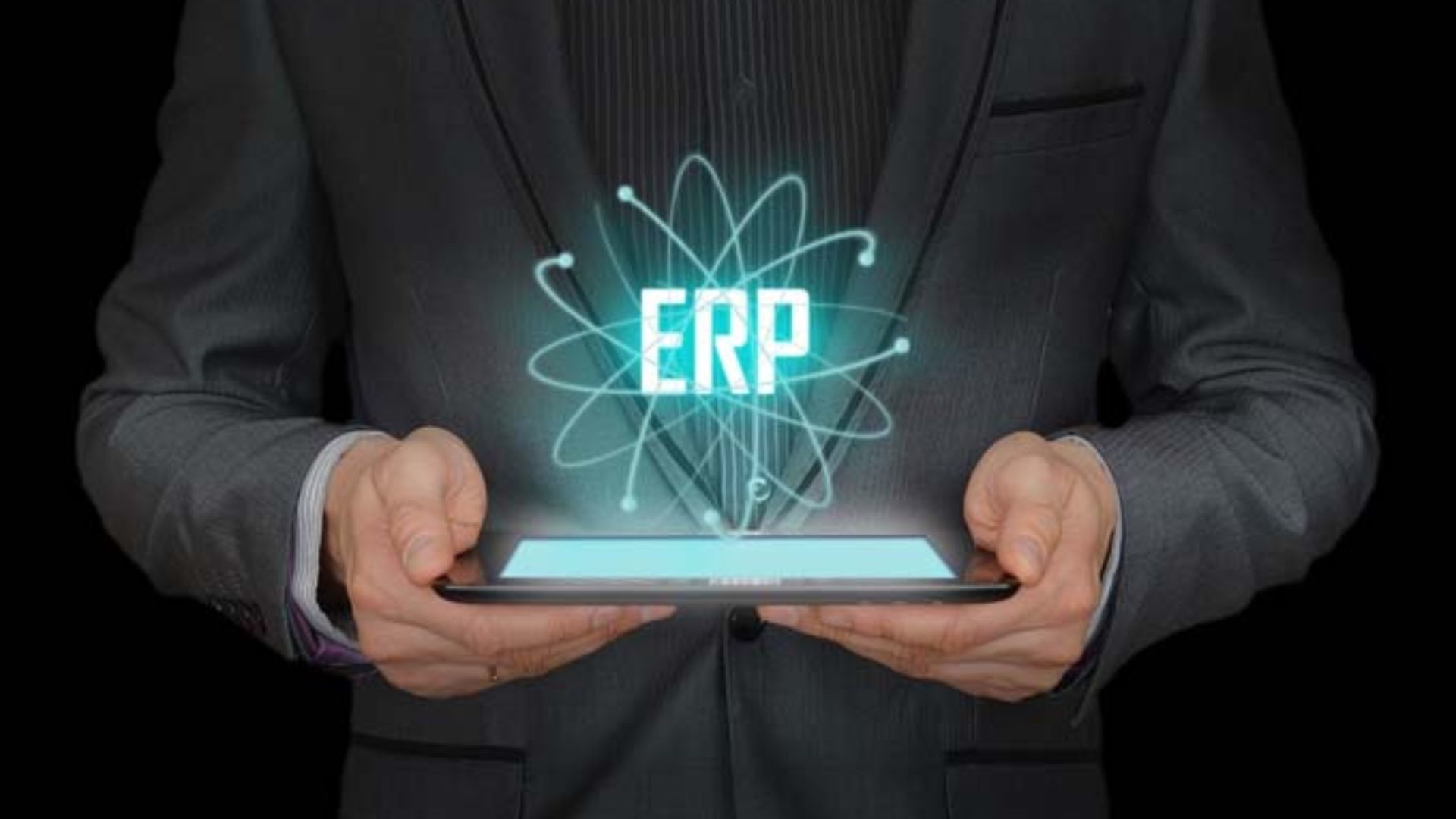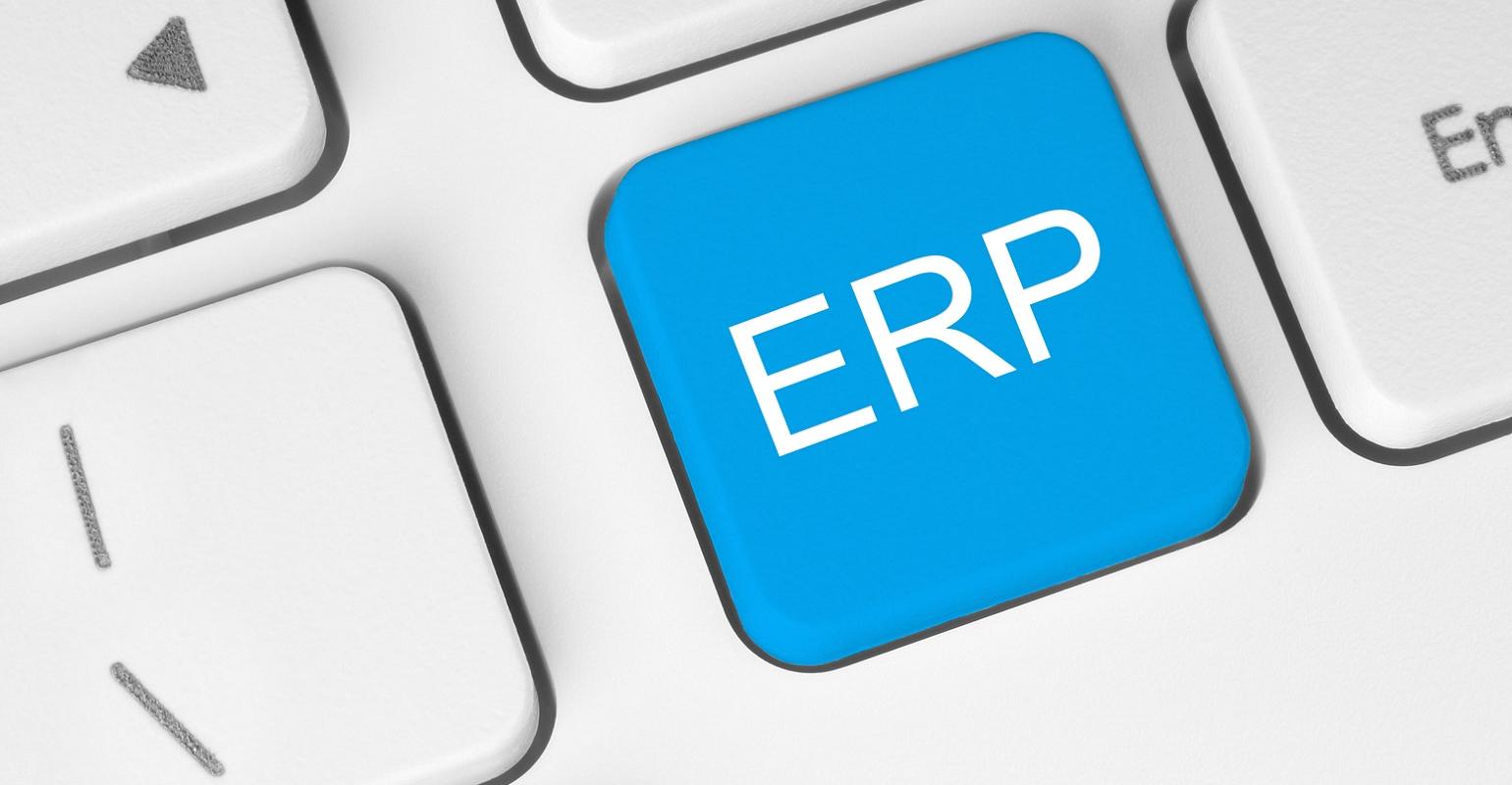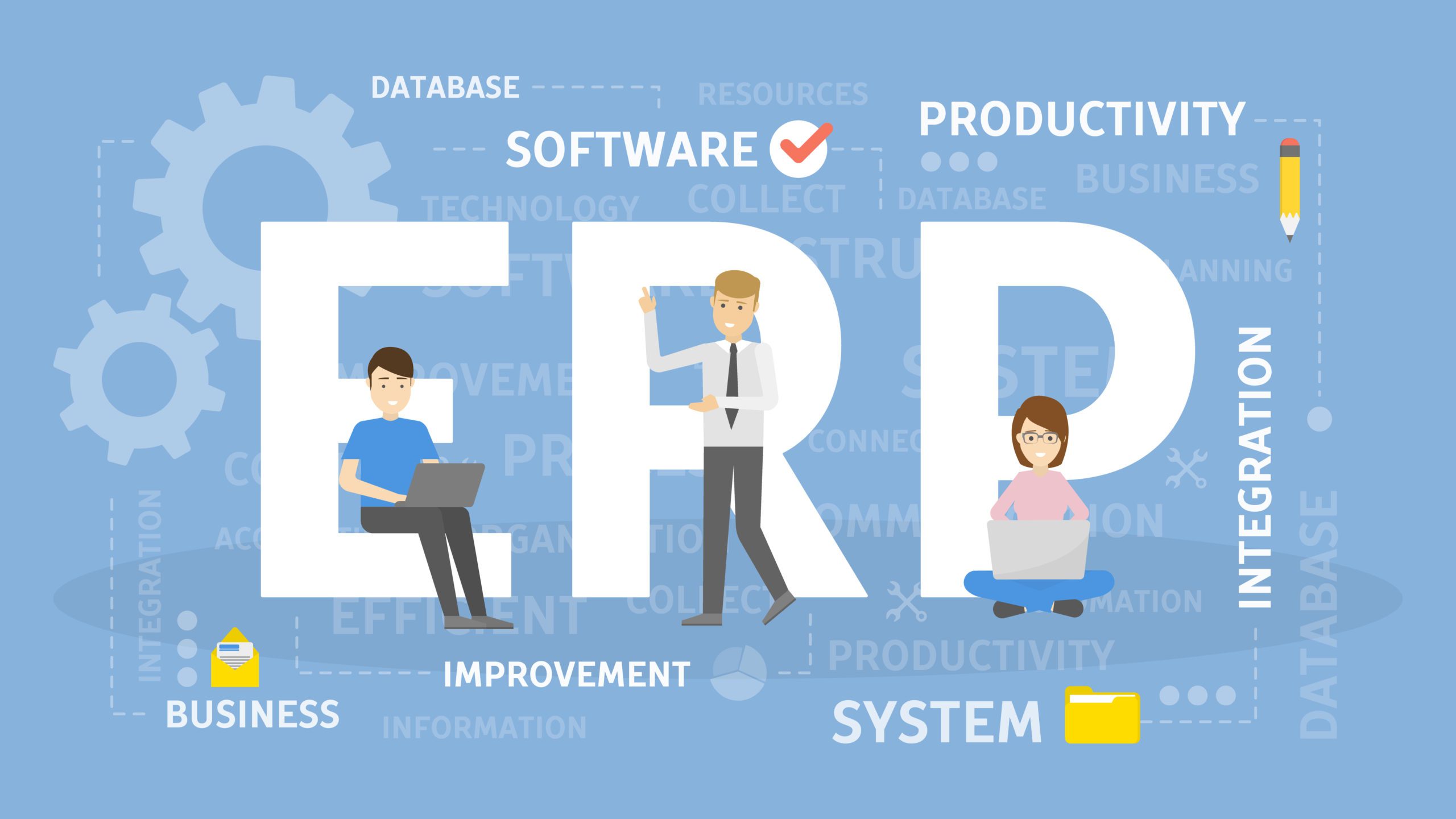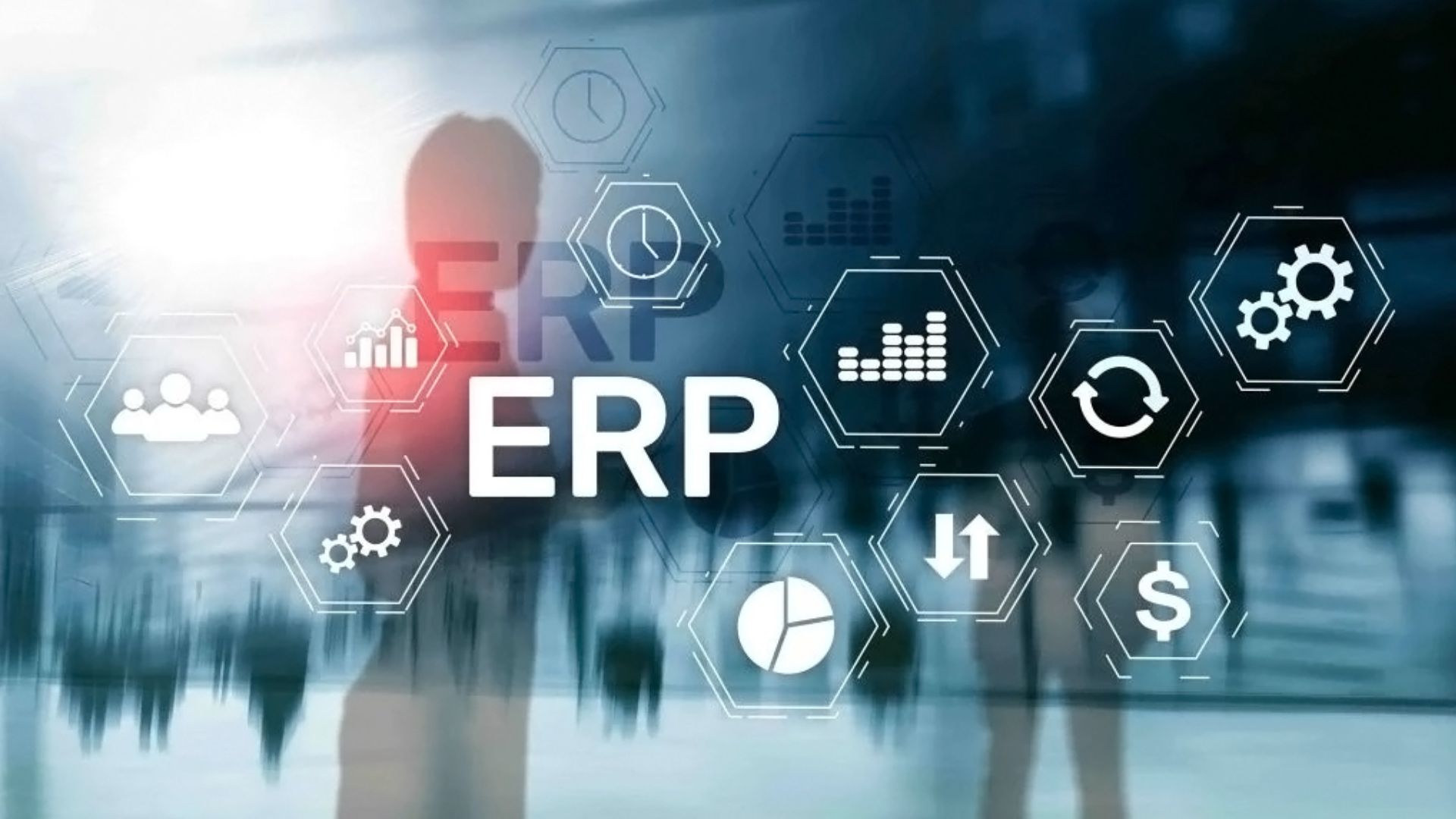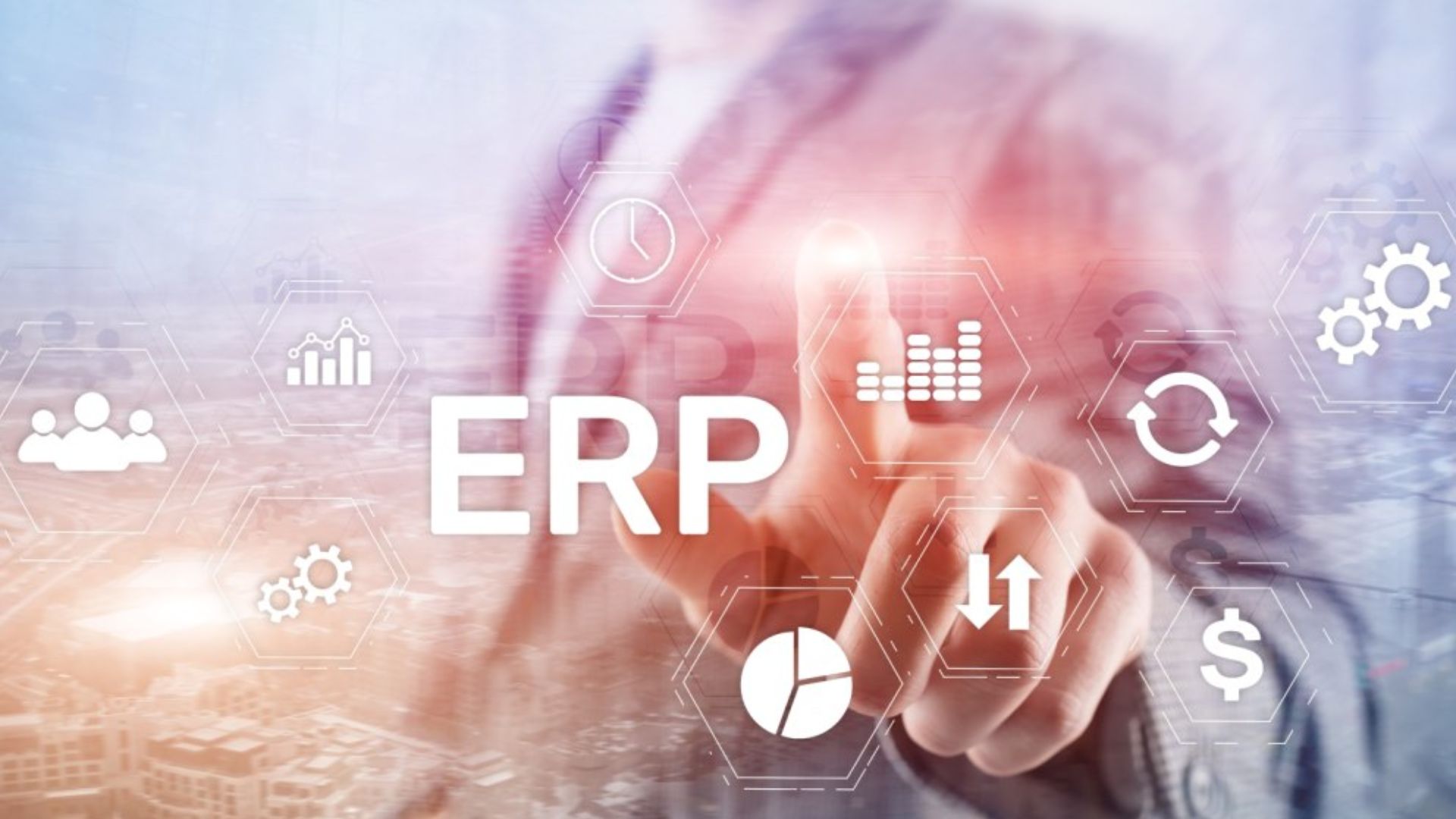
We can now look into the future and see what's in store for ERP software and business technology in 2024. Another year has gone by. We think that the IT trends we see will easily build on the waves of digital change that began in the past few years. Enterprise Resource Planning (ERP) is changing quickly into what it will be in the future.
In 2024 several trends in ERP are set to make business efficiency and financial management a lot better. Some of these new trends are cloud computing, stronger artificial intelligence (AI), environment and energy, social, and governance (ESG), and bigger operational scopes with the mix of ERP and MES and better usability.
Companies need to quickly change how they run their whole business to reach their strategic business goals now more than ever. In this article, we will discuss the ERP trends for 2024. Before we talk about the trends, let’s first explore what the EPR means. It stands for "enterprise resource planning."
But what does that make sense of? Thinking about all the main business processes that a company needs to run finance, HR, manufacturing, supply chain, services, buying, and more is the easiest way to explain what ERP is.
At its most basic level, ERP helps to run all of these tasks smoothly by combining them into one system. The system of records for the company is another name for it. Here are some top ERP trends for 2024!
1. Increased Financial Management
One important part of the coming ERP trends is better financial management. Businesses can now make better choices that help them grow because they have more improved tools for financial planning, spending, reports, and research. By simplifying financial processes, ERP systems help businesses make the best use of their resources, cut costs, and quickly respond to changes in the market.
Companies today, in 2024, have access to more advanced ERP systems that help them better handle their finances. For example, a local shop can now easily keep an eye on and examine their costs, profits, and cash flow so they can make smart choices about what to buy, how much it costs to run, and how to plan their total budget.
2. Cloud Computing
In the world of ERP, cloud computing has become a big power. It has options that are adjustable and low-cost for businesses of all kinds. Cloud-based ERP systems get rid of the need for hardware on-site and let users view data and apps in real-time from anywhere with an internet link.
This not only makes things run more smoothly, but it also pushes people in different parts of the world to work together. Businesses have more access and can grow more easily since cloud computing is being used more and more in ERP systems.
For example, a small manufacturing company can now access its data from afar, making it easy for people in different places to work together in real time and even grow their business.
3. Customization Replacing Standardization
When it comes to ERP, an organization's clear competitive edge comes from the way it runs its business. The groups of today have their unique tastes and traits. An ERP system that can be customized is very flexible and lets you offer features that work perfectly with your business's processes.
When using traditional ERP systems, businesses often have to make big changes to how they do business. However, ERP systems that are flexible can be changed to keep a company's business process or routine the same.
Workflows, records, and processes that can be changed Make it easier for people to learn, have little effect on how business is done, and offer a huge productivity boost.
4. Emphasis On Integration
As the use of cloud and SaaS ERP grows, standard APIs are often used for interaction. Technological liberty needs to have an ERP that lets you connect to third-party apps.
Customizable ERP solutions give you access to APIs and let you add niche third-party solutions. This lets businesses quickly add or remove features from their ERP solutions and have more control over the development and deployment processes.
5. Cloud-First Approach To ERP
Even though it's not a new idea, cloud-based ERP is still seen as one of the most important trends. Cloud computing opened up a new world of ERP by letting SaaS choices that make work more efficient, save time, lower the total cost of ownership, and help businesses change how they do things come into being.
SaaS ERP options have taken over the market thanks to their open, flexible, and scalable cloud apps. A lot of businesses that still use on-premise ERP are beginning to see how and why they are falling behind. As the pandemic made clear, practical problems like limited freedom, high costs for growing, a lack of new ideas, and only some teamwork made it necessary for many companies to work from home, rendering on-premise solutions useless.
6. Blockchain Integration In ERP
Blockchain technology makes deals safer and more open than ever before. We think that more and more ERP providers will use blockchain technology in 2024.
This is especially true in fields like supply chain, banking, and industry where tracking and openness are very important. This connection will make it easier for people to trust each other, make sure that deals are real, and cut down on scams and data theft.
7. Two-Tier ERP
In the past, many companies have tried to get all of their area offices, branches, and main offices to use the same ERP system. However, that method was usually expensive and hard to use because companies often had specific needs and didn't need the full power of the company system. They also had trouble with the one-size-fits-all approach.
Two-tier ERP is one of the most important ERP trends for 2024 because of this. Two-tier ERP lets companies use the ERP systems they already have at the business level (tier 1). Subsidiaries and divisions, on the other hand, use a different ERP system (tier 2), which is usually hosted in the cloud.
Smaller parts of a company use systems that are specifically designed for their needs. Larger companies, on the other hand, may still use their main ERP system for finances and other important tasks. How well this method works also depends on how well the different levels can share information; some tier 2 cloud options can integrate with ERP systems.
8. Expanded Operational Scope (ERP-MES Combination)
The next version of ERP systems will have a wider range of operations. It combines ERP and Manufacturing Execution Systems (MES) to link activities on the shop floor and information management across the whole company.
Additionally, as ERP technologies continue to improve, they will become easier to use, with features like customizable displays and advanced customization choices. With these changes, businesses will be able to react more quickly to changing market needs and find new ways to grow.
9. Personalization
In the past, it was hard to make ERP systems fit the needs of each company because they used complicated computer languages. On the other hand, cloud ERP systems, which are also called "low-code" tools because they are easy to set up, can now help businesses. More and more ERP systems are being made to meet the needs of different businesses.
Companies want ERP systems that can meet their needs, like screens that can be highly customized, so they can focus on giving customers more personalized and useful experiences.
A trend in this direction is the rise of AI-based talking and guided user interfaces like chatbots. These can read voice or written input from users and answer questions using customer and order data kept in the ERP.
10. Mobile ERP
ERP companies have long had mobile options, and more and more people are using mobile apps. ERP solutions are changing to give employees access to important business data while they're on the go.
This way, employees can do both back-end and front-end work from anywhere, like an airport, a store checkout, or the warehouse floor. Mobile ERP can also make it easier for workers in different time zones to work together even though they are in different places.
Mobile ERP apps with an easy-to-use design let users do things when they're not in front of a computer. Employees can use their cell phones to do things like report expenses, keep track of calls, and keep an eye on their time.
They can also use them to check on the progress of important processes or approvals. Mobile ERP gives you data and insights in real-time, as well as general benefits like always-on online access, more flexibility, and higher productivity.
11. Focus On User Experience (UX)
The user experience is no longer an afterthought when designing an ERP system. Modern ERP systems put a lot of stress on having easy-to-use displays, navigation that is simple, and unique experiences.
Expect ERP companies to put a lot of effort into improving the user experience (UX) in 2024. This will make it easier for workers at all levels to use the ERP system and get value from it.
12. Sustainability And ESG Considerations
Environmental, Social, and Governance (ESG) factors are becoming more important in business.
ERP systems are thought to help businesses track, report, and improve the ways they care for the environment. By 2024, ERP systems will likely have tools that let companies keep track of and improve their environmental effects.
Why Is ERP Important?
An ERP software system automates, integrates, and gives information that is needed to run all day-to-day business processes effectively. It is sometimes called "the core nerve system of a company." The ERP system should hold most or all of an organization's data so that there is only one source of truth for the whole business.
To quickly close the books, finance needs an ERP. ERP is needed for sales to keep track of all customer orders. Logistics depends on ERP software that works well to get people the right goods and services on time. Bills to be paid need ERP so that providers are paid on time and properly.
To make quick choices, management needs to be able to see right away how the company is doing. Of course, banks and owners need correct financial records, so they depend on the ERP system to provide them with accurate data and research.
The fact that more and more businesses are using ERP software shows how important it is to them. The G2 reportsays that the world's ERP software market will grow at a rate of 10.2% per year until it reaches US$78.40 billion in 2026.
FAQs About ERP Trends For 2024
Why Is Financial Management Important In ERP Trends For 2024?
It enables better decision-making, cost reduction, and agility in responding to market changes.
What Is The Significance Of Integration In ERP?
Integration plays a pivotal role in ERP trends for 2024 by enabling seamless communication between ERP systems and third-party applications. This fosters streamlined processes, enhances operational efficiency, and drives innovation.
What Is The Concept Of Two-Tier Erp Systems?
It allows for different ERP systems for main operations and subsidiaries/divisions, ensuring flexibility and efficiency.
Final Thoughts
The ERP trends for 2024 are expected to change many parts of running a business. Businesses can make better choices and run their finances more efficiently if they have better financial management skills. Cloud software is becoming more popular, which will give businesses more freedom, protection, and the ability to grow.
The race in the industry to make things more efficient and change the way businesses run their operations is driving the development of ERP. In 2024, the main features and implementation methods of ERP systems will continue to change in big ways. To stay ahead of the game, ERP will keep changing and adding new tools and ways of doing things.

